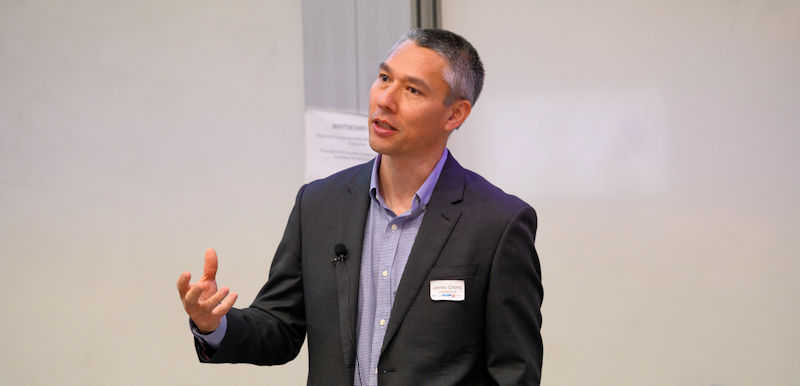From lab bench to backbench
Posted on 25 February 2020

Professor James Chong from the Department of Biology will swap a lab coat for legislation when he visits the Houses of Parliament and Whitehall for a week. Professor Chong will be at Westminster from 1 - 5 March as part of a unique pairing scheme run by the Royal Society – the UK’s national academy of science – with support from the Government Office of Science.
During his visit, Professor Chong will shadow Samuel Hare, Defra Policy Adviser for Household Waste and Recycling and learn about his work. As well as attending seminars and panel discussions about how evidence is used in policymaking, Professor Chong will also attend a mock Select Committee.
The visit will provide Professor Chong with a behind the scenes insight into how policy is formed and how his research can be used to make evidence-based decisions. It will also give Samuel Hare the opportunity to investigate the science behind his decisions and improve their access to scientific evidence.
Professor Chong said: “I am really keen to understand better how information is communicated to government and the public. My group works on anaerobic digestion, a technology that can produce renewable, carbon-neutral, biomethane gas from waste. I'm keen to ensure that our decision-makers realise how this can contribute to the net carbon zero goals of the UK.”
Samuel Hare will get hands-on experience of anaerobic applied systems biology when he dons a lab coat to visit Professor Chong at the Department of Biology later this year.
Sir Venki Ramakrishnan, President of the Royal Society, said: “It is crucial that we invest in the relationship between scientists and politicians so that either profession can articulate and appreciate the pressures confronted by both. The Royal Society Pairing Scheme does just this, endowing scientists with a fascinating insight into parliament, and connecting policymakers with the best innovative thinking in the world, and in the process, enabling both to draw from and engage with the mutual expertise needed to address the challenges of our time.”
The Royal Society’s Pairing Scheme, which started in 2001, aims to build bridges between parliamentarians, civil servants and some of the best scientists in the UK.
